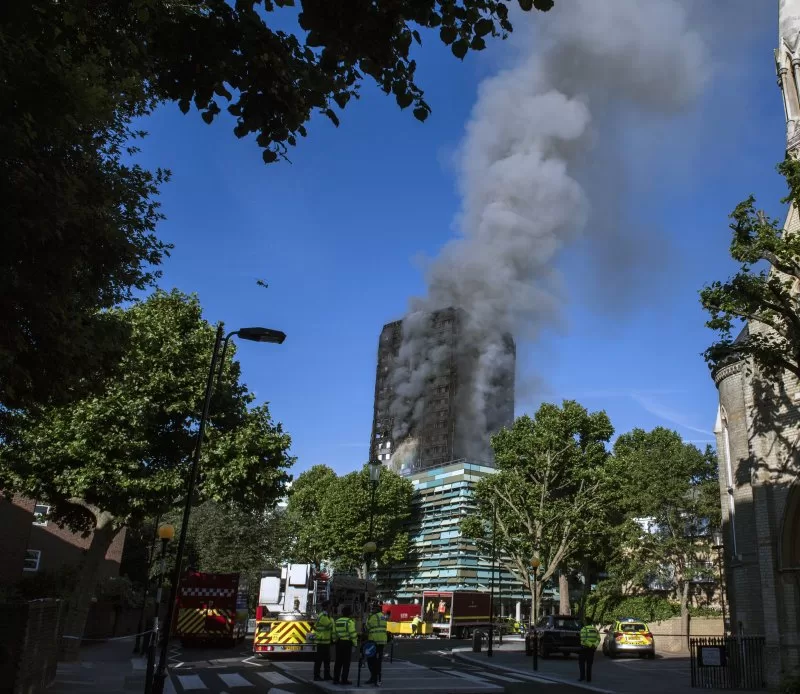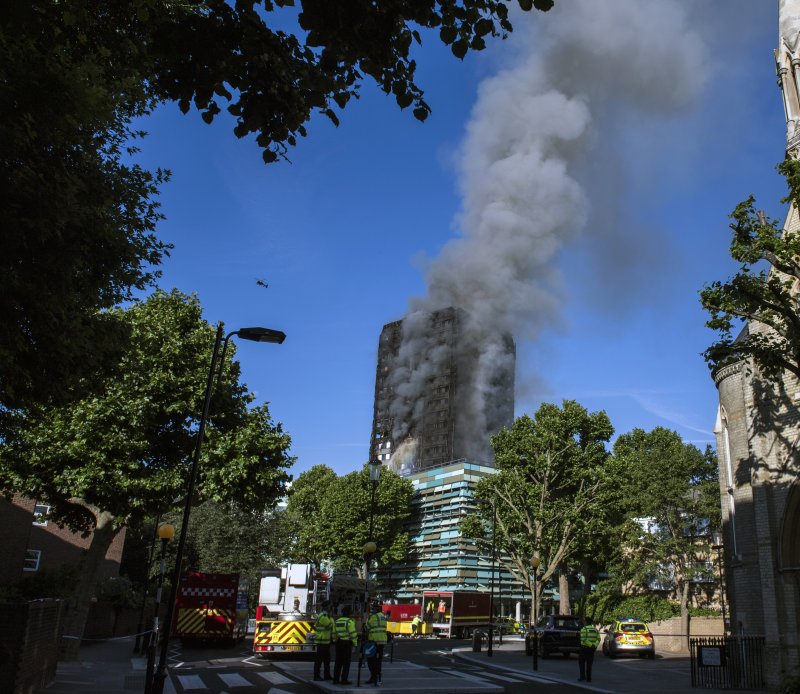London firefighters the morning after Grenfell Tower, a 24-floor apartment block in north Kensington went up in flames in the early hours of June 14, 2017. File Photo by Will Oliver/EPA
Sept. 5 (UPI) — British Deputy Prime Minister Angela Rayner said Thursday she could not say homes were 100% safe after an excoriating report into the 2017 Grenfell Tower fire in London found the deaths of 72 people killed in the tragedy could been avoided.
“All buildings in the United Kingdom could have a failing of some sort but every bit of work is being done” to make them safe she told the BBC, but she admitted flammable cladding had been removed from just 29% of 4,630 buildings found to have cladding of the type implicated in the Grenfell fire.
Rayner said work was underway on another 50% of buildings with unsafe cladding but that she was “astonished” at the number where no work had yet been started and that the government planned to speed up the process and take a tougher line with those responsible to make sure they carry out the work.
“There’s no excuse to not do this work now,” she said.
The government would provide an additional $6.6 billion to help pay for removing the cladding, widely used by developers of both public and private apartment buildings but which the government mandated in 2022 must be removed from 36-foot and higher buildings, said Rayner who is also Housing Secretary.
Acknowledging it was “incredibly difficult” for those stuck in affected buildings she promised to accelerate remediation work but refused to say how long families living with dangerous cladding would have to wait until they could feel safe.
Tens of thousands of owners and leaseholders are trapped because their property is now worth less than they paid for it. Even if they agree to a sale, lenders will not provide buyers with mortgages for property in buildings with the affected cladding.
Housing project tenants are still living in affected buildings because local authorities have nowhere else to house them.
The issue was graphically highlighted by an Aug. 26 blaze at a 7-story apartment building in east London where cladding was in the process of being removed. Firefighters safely evacuated around 80 residents from Spectrum House but two people were taken to the hospital.
Rayner said the government would come up with its response to the 58 recommendations that came out of Tuesday’s final report from the six-year public inquiry into Grenfell within six months, saying her Labor administration, which only came into office July 5, needed the time to ensure we “get this right” and “go beyond so people can be confident.”
“One of the things that was really striking to me was that greed and regulation had been put before safety,” she told Sky News. “That’s what needs to change.”
The government has promised to support police to expedite potential criminal prosecutions but with the Met and Crown Prosecution Service warning it could take years rather than months, survivors’ groups complained justice had been denied by prioritizing the inquiry over pursuing those responsible.
Grenfell Next of Kin, which campaigns on behalf of the immediate family members, said in a post on X that 72 killed, a 7-year-wait, the $228 million inquiry against no justice, no prosecutions and 17 pounds of words [the report] showed the scales of justice were way off kilter.
“Why was the Inquiry ordered by Theresa May the morning after the fire? That decision delayed justice for 7 years for the next of kin and created serious barriers to potential manslaughter charges,” said the group.
Britain has no statute of limitations but securing successful criminal prosecutions becomes much harder after long delays.

